Tinubu’s New Service Chiefs Face Steep Road Ahead: Can They Deliver on Security Targets? President Bola Ahmed Tinubu’s recent shake-up in the nation’s military hierarchy has signaled a renewed determination to confront Nigeria’s deep-seated security challenges head-on. The appointment of new Service Chiefs — General Olufemi Oluyede as Chief of Defence Staff, Major-General W. Abubakar
Tinubu’s New Service Chiefs Face Steep Road Ahead: Can They Deliver on Security Targets?
President Bola Ahmed Tinubu’s recent shake-up in the nation’s military hierarchy has signaled a renewed determination to confront Nigeria’s deep-seated security challenges head-on. The appointment of new Service Chiefs — General Olufemi Oluyede as Chief of Defence Staff, Major-General W. Abubakar as Chief of Army Staff, Air Vice Marshal S.K. Aneke as Chief of Air Staff, and Rear Admiral I. Abbas as Chief of Naval Staff — marks another turning point in Nigeria’s effort to restore peace and stability.

The shake-up comes amid mounting insecurity across several fronts: the resurging Boko Haram and Islamic State West Africa Province (ISWAP) insurgencies in the Northeast, the ongoing banditry and kidnapping crisis in the Northwest, secessionist agitation and targeted attacks in the Southeast, and maritime piracy along the Gulf of Guinea. The question now is whether this new team has what it takes to deliver on the President’s ambitious security targets.
CBN Releases $1.259bn To Oil Sector Players For Petroleum Imports
General Olufemi Oluyede – Chief of Defence Staff
General Olufemi Oluyede, who replaces General Christopher Musa, now holds the most strategic position in Nigeria’s military command structure. As Chief of Defence Staff (CDS), his primary responsibility is to coordinate the operations of the Army, Navy, and Air Force to ensure a unified, effective, and intelligence-driven response to threats.
Oluyede’s task is formidable. He must bridge long-standing rivalries between the services and ensure synergy among them. Beyond that, he is expected to strengthen collaboration with other security agencies such as the Nigeria Police, DSS, and Civil Defence Corps — a partnership crucial for internal security operations.
Under his leadership, the Defence Headquarters will need to move beyond reactionary deployments to embrace predictive intelligence, drone technology, and data-driven decision-making. Analysts argue that his success will depend largely on his ability to reform military doctrine and reorient troops toward modern, asymmetric warfare.
Major-General W. Abubakar – Chief of Army Staff
The Nigerian Army remains the backbone of the country’s counterterrorism and counterinsurgency operations. Major-General W. Abubakar inherits an overstretched force battling multiple internal conflicts — from terrorist ambushes in Borno and Yobe to farmer-herder clashes in Benue and Taraba, and armed banditry in Zamfara, Katsina, and Niger states.
As Chief of Army Staff (COAS), Abubakar must tackle the challenges of troop morale, logistics, and equipment maintenance. Many frontline soldiers have complained about delayed allowances, poor welfare, and lack of modern weaponry — issues that have often undermined effectiveness and discipline.
He is also expected to restore public confidence in the Army’s operations by ensuring greater respect for human rights and accountability during field missions. Observers say his ability to balance toughness with professionalism will define his legacy. There are also expectations that he will strengthen the Army’s special forces units and enhance their operational mobility to strike deep into terrorist strongholds.
Air Vice Marshal S.K. Aneke – Chief of Air Staff
Air Vice Marshal S.K. Aneke takes charge of the Nigerian Air Force (NAF) at a time when air power has become central to Nigeria’s counterinsurgency campaigns. Over the years, airstrikes have played decisive roles in weakening terrorist groups, but there have also been controversies over civilian casualties and intelligence lapses.
Aneke’s priority will be to modernize air operations through precision-guided weaponry, better surveillance systems, and stronger maintenance capacity. He is expected to leverage Nigeria’s growing fleet of Tucano aircraft, drones, and fighter jets to provide real-time support to ground troops.
Equally important will be personnel training and collaboration with the Army and Navy for joint operations. Analysts believe Aneke’s success will depend on how effectively he integrates technology into air campaigns and enhances air-to-ground coordination to reduce collateral damage.
Rear Admiral I. Abbas – Chief of Naval Staff
Nigeria’s maritime domain is both strategic and vulnerable. The Gulf of Guinea remains one of the world’s most piracy-prone zones, while oil theft and illegal bunkering continue to drain billions of dollars from the economy annually. Rear Admiral I. Abbas, as the new Chief of Naval Staff (CNS), is tasked with safeguarding Nigeria’s territorial waters and maritime assets.
Abbas must intensify patrols, invest in modern naval platforms, and deepen cooperation with the Nigerian Maritime Administration and Safety Agency (NIMASA). A key priority will be to strengthen the “Deep Blue Project” — Nigeria’s integrated maritime security strategy — and enhance collaboration with regional and international partners such as the Interpol-led “Operation Obangame Express.”
Moreover, he must address corruption and inefficiencies within the naval command structure to ensure that resources are properly utilized for operational readiness.
A Test of Teamwork and Political Will
Beyond individual performance, the success of the new Service Chiefs will hinge on their ability to work as a team and align their strategies with President Tinubu’s national security blueprint. Coordination between the Defence Headquarters and the Office of the National Security Adviser (ONSA) will be essential in streamlining intelligence gathering and operational planning.
Equally, there is the question of political will and adequate funding. Nigeria’s military operations are costly, and chronic budgetary shortfalls have historically undermined effectiveness. If the government truly wants to see results, experts say it must match appointments with consistent funding, improved welfare, and policy continuity.
Public Expectation and Accountability
Nigerians are watching closely. From Abuja to Maiduguri, from Zamfara to Rivers, the demand is the same — security, safety, and stability. Citizens expect measurable results: fewer abductions, safer highways, and the eventual return of internally displaced persons (IDPs) to their homes.
In the coming months, the performance of the new Service Chiefs will be judged not by speeches or ceremonies but by tangible outcomes in the field. The road ahead is undeniably rough — but with vision, discipline, and cooperation, the new military leadership could finally turn the tide against insecurity.
In short, the clock has started ticking. The nation waits to see if Tinubu’s new Service Chiefs can deliver where their predecessors struggled — securing Nigeria, once and for all



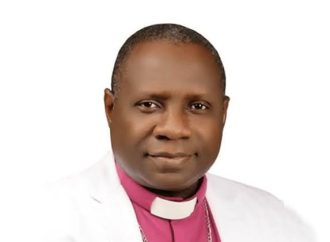
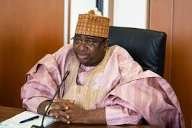
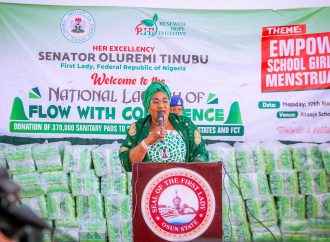
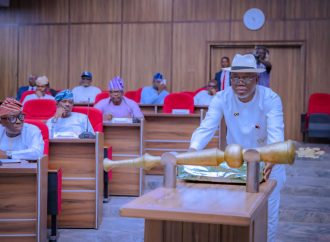
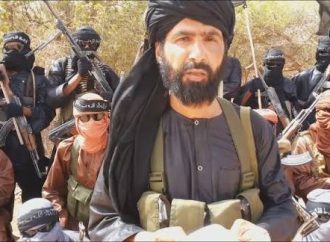



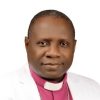
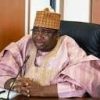

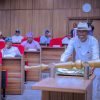




Leave a Comment
Your email address will not be published. Required fields are marked with *